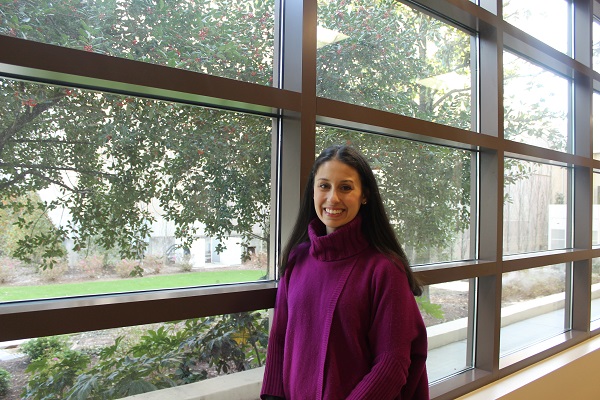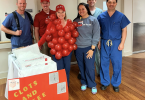Emily Sauerteig, Fructose and Lactose intolerance
Emily Sauerteig does not take activities like working out and spending time with her daughter for granted and credits Dr. Satish Rao’s caring and empathetic manner, along with his involvement in the latest research, for finding the answers that improved the quality of her life.
Emily suffered from constant stomachaches that kept her up at night, pain that had her doubled over and constipation that lasted for weeks.
In 2002, a doctor told her that her colon was dysfunctional and diagnosed her condition as a misshaped colon and dysfunctional pelvic floor causing chronic constipation.
Doctor after doctor gave the same prognosis; she needed to have her colon removed. Emily found herself being prescribed medication after medication that would only temporarily alleviate her symptoms.
“I was told I was depressed and needed depression medicine, Emily said. “I knew I wasn’t depressed; I just felt bad because my colon wasn’t working.”
Emily could not resolve herself to having her colon removed.
“If a doctor is giving you an answer that you are not comfortable with, find someone who will listen to you and will resolve the issue in a way that you are comfortable with,” Emily said.
Emily came to Augusta University’s Digestive Health Center and Dr. Rao listened to her concerns and found another way to make her life work.
“He was the first to say I didn’t need to remove my colon,” Emily recalled. “He was the first doctor that said ‘we’re going to find a way.”’
Emily said Rao did a test that none of the other doctors she had seen had thought of doing. The test detected her colon’s inability to properly absorb fructose and lactose.
Rao did tests that were “different from the many I had before,” “tests that were on the cutting edge,” and “he knew different avenues to pursue,” Emily said. “He is ahead of research and involved in research so he knows ways other people haven’t heard of; he doesn’t just recommend to try more or different drugs.”
Emily said by knowing about her colon’s inability to absorb fructose and lactose, not only was she able to avoid surgery, but she no longer experiences pain strong enough to keep her in bed for days.
“There is so much to explore, and that is what Dr. Rao is doing,” Emily said. “There are many new treatments out there, and the only way to find them is to research. Dr. Rao is doing that research and knows where it is headed. “
GI disorders affect 15 percent of people and are most common in women over the age of 65.
Emily believes because GI issues are so common, it is important to talk about her experience so people can learn from it and seek the doctor who is right for them.
To learn more about Augusta University Digestive Health Center visit augustahealth.org/digestivehealth.


